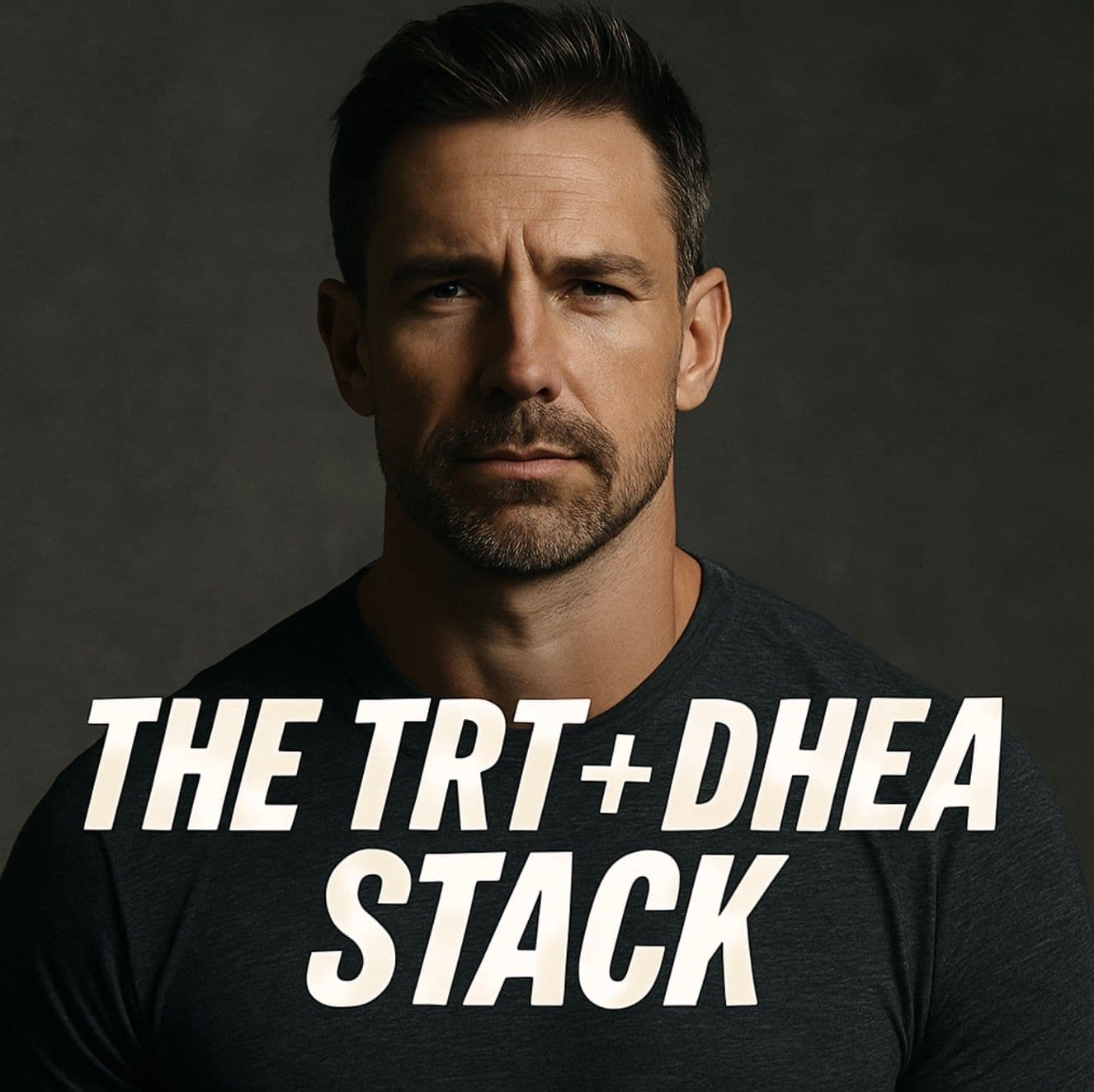The TRT + DHEA Stack: Unlocking Energy, Mood, and Balance
Published on:
Updated on:

People are asking...
Aside from high/low E2, what else are the primary reasons a person on TRT would have poor mood and low energy?...
Hormonally speaking, it could relate to the neurosteroids pregnenolone and DHEA-S. These act directly on the brain and are associated with mood and cognition. When on exogenous testosterone, these hor... See Full Answer
Is there a benefit to adding DHEA to TRT?...
I would first consider your current DHEA levels. There can be benefit as it can support test production/levels and in a different pathway. This can improve energy and libido. However, DEAH with TRT ca... See Full Answer
Currently my provider has paired TRT with DHEA. What is the benefit/risk of DHEA?...
Adding DHEA benefits: Helps with the downstream effects of creation of DHEA-S and androstendione. Both of which typically have positive effects on mood and cognition. Adding DHEA risks: Extra DHEA can... See Full Answer
Have a question? Ask us.
At AlphaMD, we're here to help. Feel free to ask us any question you would like about TRT, medical weightloss, ED, or other topics related to men's health. Or take a moment to browse through our past questions.
When men begin testosterone replacement therapy (TRT), the results can be transformative. Energy levels rise, muscle recovery improves, and motivation often comes roaring back. But sometimes, even after testosterone has been optimized, a handful of men still say something feels “off.”
Physically, they feel strong. Mentally, they’re sharp. Yet emotionally, it’s as if someone turned the color dial down—life feels a little flat.
This is where adding DHEA to the stack can make all the difference.
What is DHEA?
Dehydroepiandrosterone (DHEA) is a hormone naturally produced by the adrenal glands. While it’s not as well-known as testosterone, it serves as a building block for other hormones in the body. Think of it as part of the “behind-the-scenes” crew that helps keep your system balanced.
Over time, or under chronic stress, DHEA levels can decline. When this happens, men on TRT may still experience low mood, lack of motivation, or diminished libido despite otherwise solid results.
Why Stack TRT + DHEA?
Pairing TRT with DHEA isn’t about piling on more hormones—it’s about creating balance. Here’s what men often notice when the stack is dialed in:
- More stable mood – That “flat” emotional state may fade, restoring a greater sense of engagement.
- Steady energy – Fewer dips throughout the day, better fuel for both work and play.
- Libido support – For some, DHEA brings back desire that testosterone alone didn’t fully restore.
Think of testosterone as the foundation and DHEA as the finishing touch that rounds out the experience.
The Bigger Picture
Hormones don’t work in isolation. When testosterone is optimized but adrenal hormones lag behind, men may be left wondering why they don’t feel as vibrant as they expected. Supporting both can provide a more complete return to balance—mind, body, and mood.
Of course, hormone therapy is never one-size-fits-all. Lab work, individualized dosing, and medical supervision are key.
At AlphaMD, we’ve seen firsthand how stacking TRT with DHEA can help men feel more like themselves again—not just stronger, but more alive. If you’re thriving physically but still searching for emotional balance, the TRT + DHEA stack may be the missing link.
Have a question? Ask us.
At AlphaMD, we're here to help. Feel free to ask us any question you would like about TRT, medical weightloss, ED, or other topics related to men's health. Or take a moment to browse through our past questions.
People are asking...
Aside from high/low E2, what else are the primary reasons a person on TRT would have poor mood and low energy?...
Hormonally speaking, it could relate to the neurosteroids pregnenolone and DHEA-S. These act directly on the brain and are associated with mood and cognition. When on exogenous testosterone, these hor... See Full Answer
Is there a benefit to adding DHEA to TRT?...
I would first consider your current DHEA levels. There can be benefit as it can support test production/levels and in a different pathway. This can improve energy and libido. However, DEAH with TRT ca... See Full Answer
Currently my provider has paired TRT with DHEA. What is the benefit/risk of DHEA?...
Adding DHEA benefits: Helps with the downstream effects of creation of DHEA-S and androstendione. Both of which typically have positive effects on mood and cognition. Adding DHEA risks: Extra DHEA can... See Full Answer
Get $30 off your first month’s order
Enter your email address now to receive $30 off your first month’s cost, other discounts, and additional information about TRT.
Legal Disclaimer
This website is a repository of publicly available information and is not intended to form a physician-patient relationship with any individual. The content of this website is for informational purposes only. The information presented on this website is not intended to take the place of your personal physician's advice and is not intended to diagnose, treat, cure, or prevent any disease. Discuss this information with your own physician or healthcare provider to determine what is right for you. All information is intended for your general knowledge only and is not a substitute for medical advice or treatment for specific medical conditions. The information contained herein is presented in summary form only and intended to provide broad consumer understanding and knowledge. The information should not be considered complete and should not be used in place of a visit, phone or telemedicine call, consultation or advice of your physician or other healthcare provider. Only a qualified physician in your state can determine if you qualify for and should undertake treatment.
